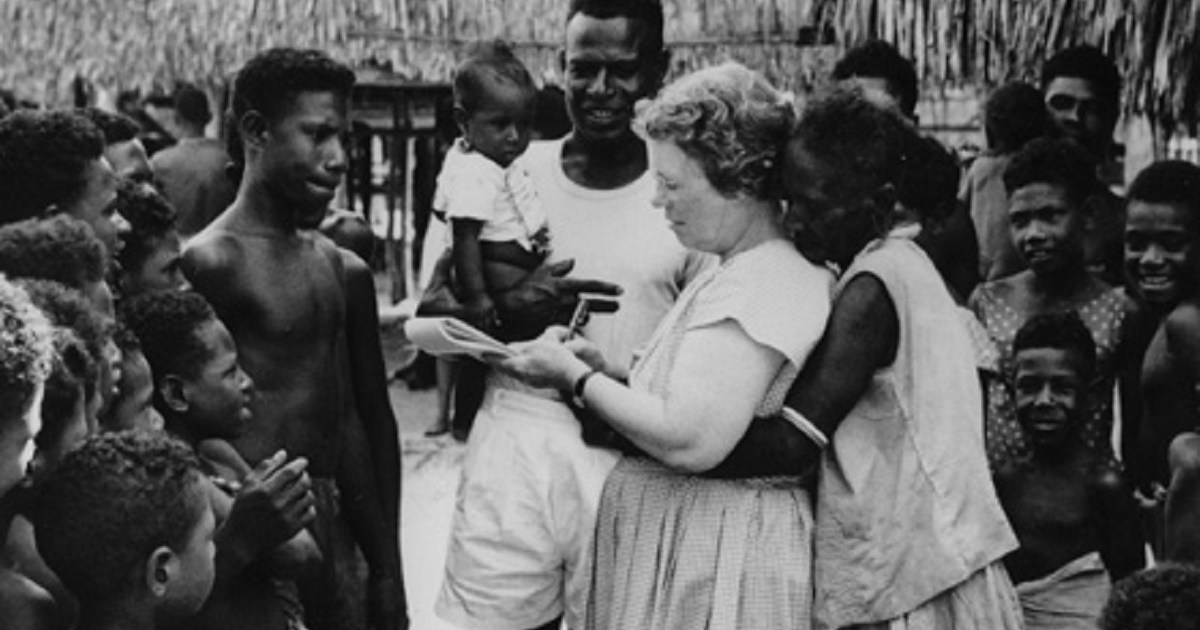Anthropologist Margaret Mead takes notes during one of her fieldwork.
For decades it was held that when a student asked Margaret Mead what the origin of civilization was, the famous anthropologist replied that it was the moment when a human femur healed. Mead explained that in the Paleolithic and wild environment no adult animal can survive if one of its main limbs is severely damaged. “It could not flee, it could not move to get food or water, and finally it would be easy prey for some predator.” If an adult human managed to heal his broken femur, that showed that he enjoyed the help of other humans who for weeks cared for him, defended him, and gave him food and water.perhaps even exposing themselves to being preyed by other human groups with which they might be in conflict or by more powerful animals, such as a lion or a bear. The conclusion is clear: civilization does not begin with a new technology (the city, money, writing, as they usually say) but with a social trait: solidarity among group members.
Since this anecdote began to circulate – more than 60 years ago – it has been questioned whether Margaret Mead could have said something similar (firstly because in her books she maintains that civilization begins in the Neolithic, with sedentary lifestyle, planting and the creation of cities, as maintained by the majority of historians and anthropologists). Regardless of whether Mead said that or it was an invention that went viral, the important thing is to think about the fact itself and what meaning it has in human history. Aren’t there other animals that take care of their disadvantaged members for a long time? There are examples, but not with injured animals but rather collaboration in the natural routine: For example, several species of birds have the female in charge of brooding the eggs while the male searches for food for weeks.
There are some current examples of animals that have survived injuries that have immobilized them for weeks. But they are animals that were in forests or parks where there were no natural predators. Finding remains from 45,000 or more years ago of a person whose femur has healed is clear evidence that it has been the subject of intensive care for weeks by another person or a group. And while help between individuals in the animal kingdom is not absolutely exceptional (although it is very rare), What is exceptional is that care, in a wild and very dangerous world, is sustained for weeks or months – the time necessary for the injured person to be able to recover. relatively well on its own.
Human beings have proven to be extremely violent. In fact, it is the main cause of extermination of animal species on the planet. Furthermore, we are also cruel to our own kind: for millennia, wars and armed conflicts between different tribes have been one of the main causes of death. Hundreds of millions of people died in the 20th century in armed conflicts and political persecutions.
But human beings also have a very pronounced empathetic side, which is what has allowed us to collaborate with each other and survive. to conditions that for millions of years were terribly difficult. To be human is to be complex and contradictory.
Empathy for other members of the group (which reaches the extreme of voluntary sacrifice) has been as essential an element as language to guarantee the durability of humanity. We already know that without language it would have been impossible to organize complex societies. At most we could have continued living in flocks some of them dozens, like other primates.
It was language that allowed us to create shared myths, beliefs that bring us together in a group as enormous as modern nations. But the ability to tolerate living with others is also the result of that feeling of empathy, essential to fraternize, to understand the pain of the other. and to help him when we see him in trouble.
Anonymity in the big city distances us more and more from others. Now we seek that the State or social organizations created for this purpose take care of those who have health problems, for example. And we are even discussing whether or not it is fair to worry about those left on the streets. One hundred thousand years of technical development are locking us into greater selfishness. Moral development does not go hand in hand with technology.
Today we have more means than ever to solve problems, but we have less and less empathy to use those means for the benefit of everyone, especially those who are most helpless. The more we have, the less empathetic we are.
